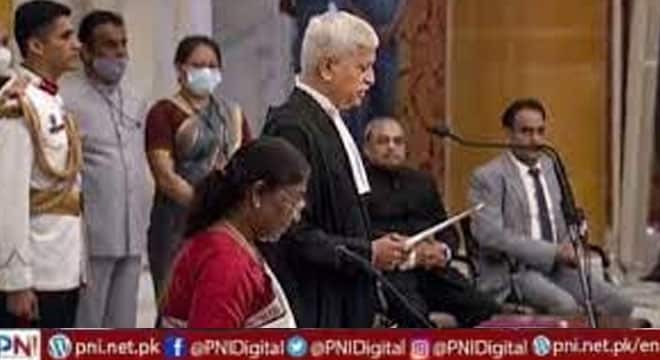NEW DEHLI 27 Aug (Online): Uday Umesh Lalit was sworn in on Saturday as India’s Chief Justice for the Supreme Court, though he is only set to hold the post for 74 days before his retirement falls due in November.
Under India’s constitution, Supreme Court justices are required to retire aged 65 years. The chief justice is appointed by the president according to seniority.
Earlier this month, Lalit’s predecessor Chief Justice N.V. Ramana said 65 “was too early to retire” for a judge.
An estimated 45 million cases are pending in Indian courts according to the National Judicial Data Grid. The slow disposal was mainly due to a shortage of judges, with some 5,000 positions lying vacant in the lower judiciary, and 400 vacant positions for high court judges.
The Supreme Court currently has around 30 judges, and there are four vacancies.
During his oath-taking ceremony today, Justice Lalit said that there would be a permanent five-judge bench in the Supreme Court and promised to expedite hearings on cases referred to three-judge benches, The Times Of India Reported On Saturday.
He said that during his 74-day tenure as the CJI, he would strive hard to make the listing process for fresh cases as simple, effective, quick and transparent as possible, the TOI said.
According to a report published in NDTV, the new chief justice was born on November 9, 1957, in Maharashtra. Justice Lalit enrolled as an advocate by the Bar Council of Maharashtra and Goa in June 1983. He practised in the High Court of Bombay till December 1985 before shifting his practice to Delhi in January 1986.
The new CJI specialises in criminal law and has conducted trials as the Crime Branch India’s (CBI) public prosecutor in all 2G matters. He also served as a member of the Supreme Court’s Legal Services Committee for two terms.
Justice Lalit was appointed as a judge of the Supreme Court in August 2014 from the Bar, the report stated, adding that he was the second Chief Justice to be directly elevated to the Supreme Court from the Bar.
NDTV said that Justice Lalit had been part of “many important cases and delivered some landmark judgements”, the most notable being the Triple Talaq verdict, in the case of the Travancore royal family’s claim of management rights of the Padmanabhaswamy Temple in Kerala and a judgement on the law involving sexual offences against children.
Follow the PNI Facebook page for the latest news and updates.









